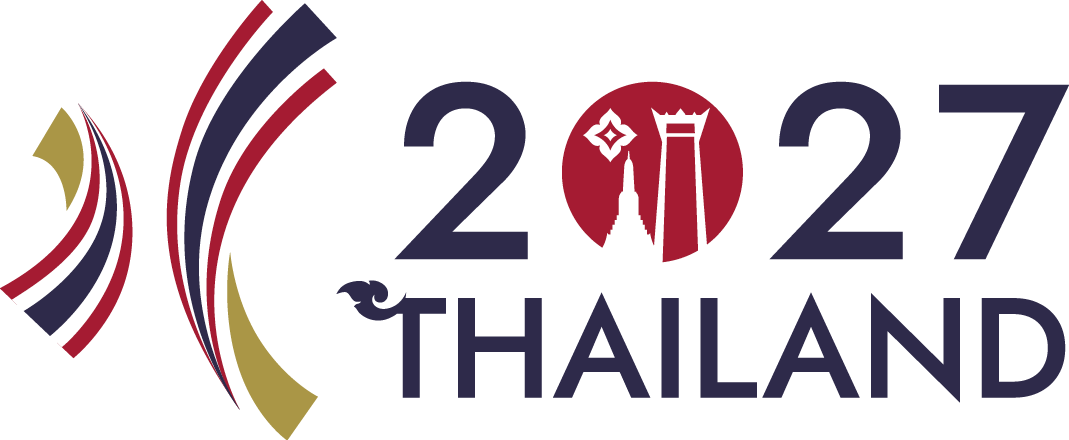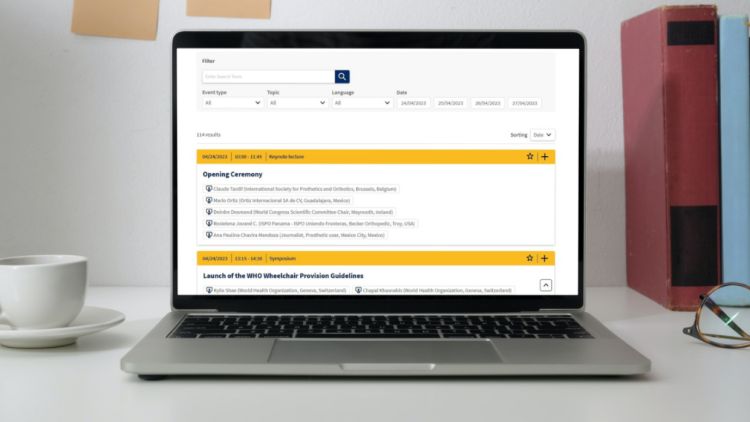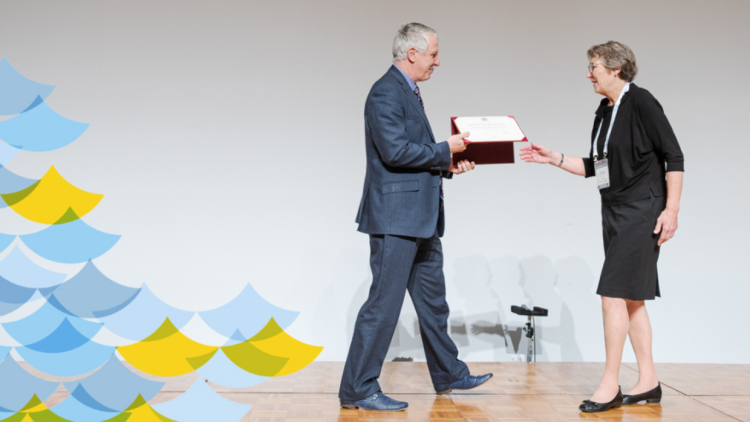Keynotes 2025
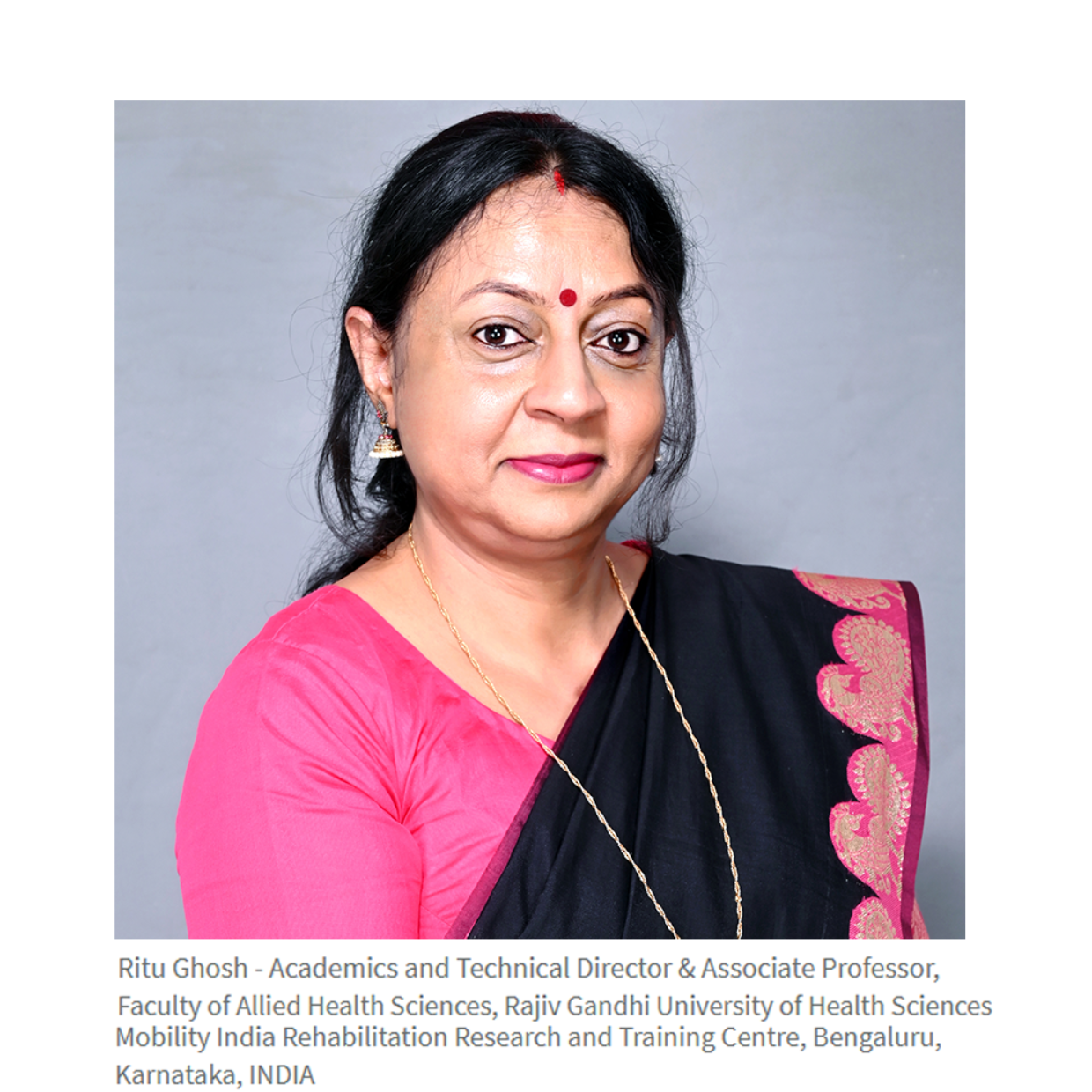
Ritu Ghosh – Knud Jansen Lecture
Overcoming challenges to transform lives: innovation in Prosthetics, Orthotics, wheelchairs and beyond
Ritu Ghosh, Prosthetist and Orthotist, holds a Master’s Degree in Business Administration in Health Care Services. She is the Academics and Technical Director of Mobility India (MI), Bengaluru. Ritu has over 28 years experience in the field of rehabilitation and assistive technology from ground to policy level. She has established national and international MI projects related to training and rehab services in over 20 countries. In 2005, she integrated wheelchair services into Mobility India's P&O services and community-based rehabilitation programmes. She introduced curriculum on wheelchairs into MI's ISPO-accredited P&O training programmes in 2006 and incorporated it into the Rehabilitation Council of India's national P&O curriculum in 2010. Ritu established the Bachelor’s (ISPO accredited) and Master’s degree P&O programmes at Mobility India and is currently advocating for the creation of India’s first PhD programme in P&O. She is also on the Academic Council of the National Institute for Empowerment of Persons with Multiple Disabilities (NIEPMD). She has been on the Board of Studies for Allied Health Sciences in the State’s University of Health Sciences, and a P&O Expert Committee of the Rehabilitation Council of India for over two decades.
Ritu served as a board member of the International Society of Wheelchair Professionals. Ritu has supported the piloting of the WHO Training in Assistive Products (TAP) learning resource in India in 2018 and is actively involved in its implementation in the region. She has spearheaded collaboration with leading research institutes in India and internationally on innovative assistive technology initiatives and advancing the field globally.
SUMMARY OF KNUD JANSEN LECTURE – Overcoming challenges to transform lives: innovation in Prosthetics, Orthotics, wheelchairs and beyond
A few decades ago, Prosthetics and Orthotics (P&O) were largely unknown as a career choice in the developing world. Often viewed as a charitable platform, particularly in developing countries, the remarkable field faced challenges to reach the level of recognition it enjoys today.
When I embarked on my career as a P&O student 33 years ago in India, I quickly realised that the field was far different from my assumptions. Disability was primarily symbolized by a wheelchair or crutches, and services were largely charity-driven. I, an Indian woman, chose to become a professional, navigating not only a new subject, but also confronting sexism in a predominantly male-dominated field.
My career began with Mobility India, where I noticed the significant need for trained professionals. There was also a pressing demand for cost-effective solutions, improved last-mile connectivity, better infrastructure, stronger collaborations among various stakeholders including ISPO, and increased awareness among the general public, community and family engagement. And more trained women P&Os were required.
In my lecture, I will talk about innovative solutions and strategies that integrate real-world rehabilitation and assistive technology that have impacted individuals, families and communities significantly.
The frontiers of technology are expanding daily to benefit individuals needing services. We must focus on leveraging these advancements to build services and strong networks. This will provide better support to both communities and the workforce with knowledge, skills, attitudes, and humanity. By doing so, we can collectively contribute to the ecosystem to enable access and inclusion for all.
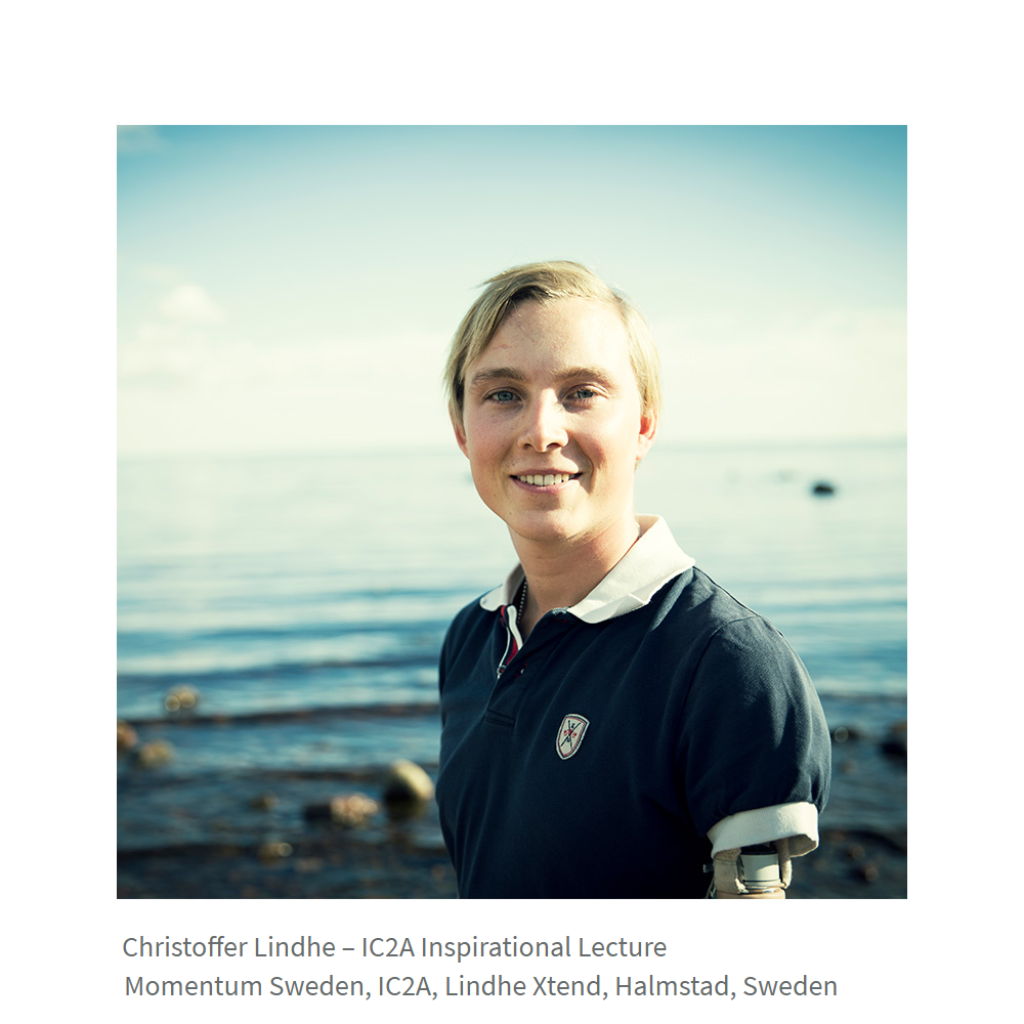
Christoffer Lindhe – IC2A Inspirational Lecture
Challenging limits, creating opportunities
Christoffer Lindhe is a triple amputee, a former Paralympian swimmer and the founder of his own prosthetic company Lindhe Xtend, based in his home country of Sweden.
At the age of 17, Christoffer lost both his legs as well as his left arm in a train accident. After experiencing this trauma, focusing on competitive swimming gave him something to work for and became so much more meaningful than athletics.
By engaging with the amputee community and becoming an advocate for them, he found a real purpose in life. After gaining a master’s degree in product development engineering, Christoffer decided to start his own company making user-friendly prosthetics, employing his own experience to drive change in everyday life for himself as well as for other amputees.
With his #4 ranked YouTube channel about life as an amputee, Christoffer provides tremendous inspiration to countless people as he shares his personal experiences with the global limb-loss community. Christoffer founded the AmpisLiv Association in Sweden, which recently merged with Momentum in Norway. Both organisations are members of the international umbrella organisation IC2A and strong supporters of those living with limb-loss. Last year Christoffer also became a member of the board at IC2A
SUMMARY INSPIRATIONAL LECTURE – Challenging limits, creating opportunities
At the ISPO World Congress 2025, I will share a journey that defied the odds – from a 1% chance of survival to mastering two above-knee prostheses and a prosthetic arm. My story is not just about survival; it is about reclaiming my future and pushing the boundaries of what is possible.
When I first woke up after the accident, my life had changed forever. The medical prognosis was grim, but I made an early decision that my situation would not define me. Rehabilitation was brutal, but through persistence, I gradually regained my independence.
Osseointegration and Hanger Bilateral Above Knee Protocol became a turning point – Yet, despite these advancements, challenges remained. The available prosthetic feet were simply not good enough for my lifestyle and ambitions. So, I took matters into my own hands and developed my own prosthetic foot – designed to simplify my daily life and enable an active lifestyle.
My talk is about transforming adversity into motivation, about daring to challenge limitations, and about creating new opportunities. I aim to inspire others – patients, researchers, and engineers – to think bigger, to look beyond obstacles, and to push the development of prosthetic technology forward together.
Join me as I share my journey, and let’s shape the future together!
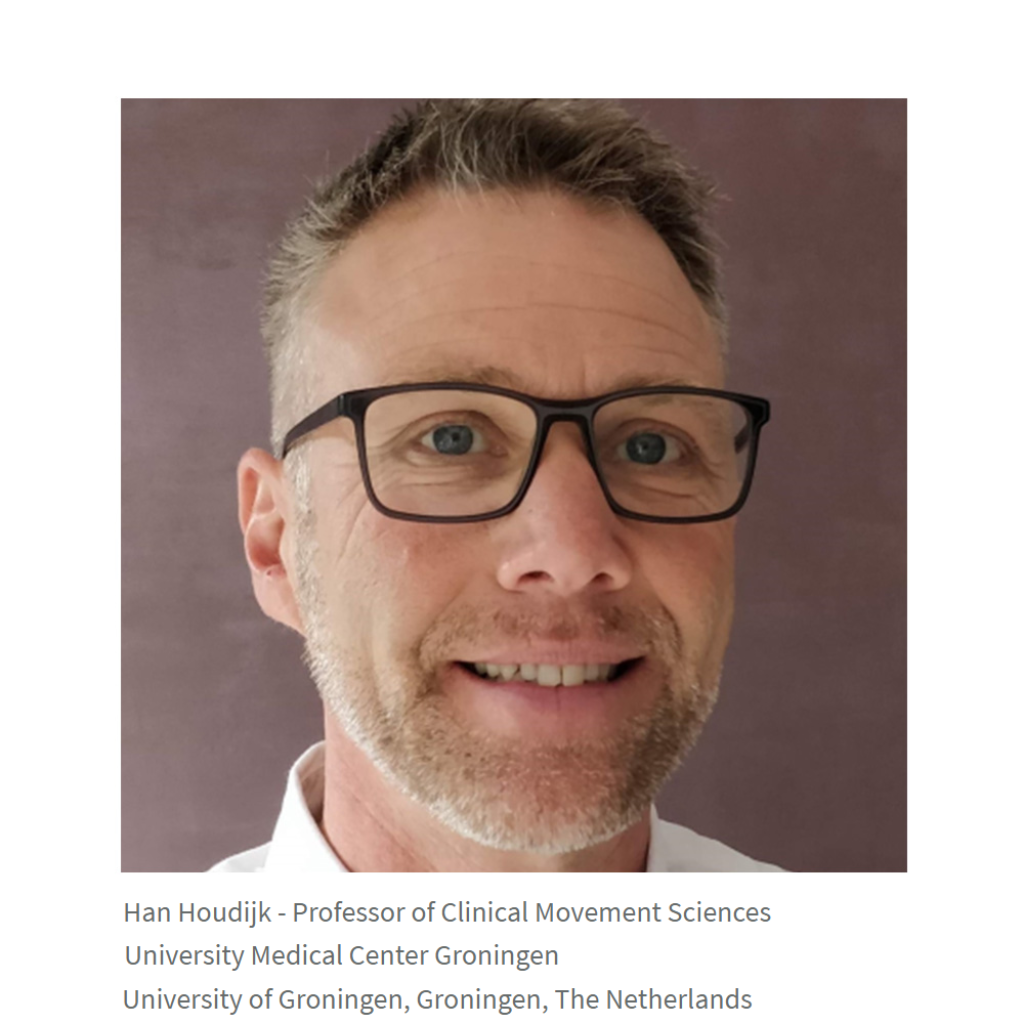
Han Houdijk
Fundamentals of human movement translated into P&O practice, and back
Han Houdijk is a professor of clinical movement sciences at the University Medical Center and the University of Groningen in the Netherlands. He leads the rehabilitation section of the Department of Human Movement Sciences and is head of the Smart Movements research programme.
Han initially trained as a physical therapist. He continued his education as a human movement scientist at the Vrije University Amsterdam, hoping to satisfy his curiosity about the complex elegance of the human movement system by finding out more not only about how it allows us to perform normal daily tasks but also what happens when this system is pathologically affected.
As a human movement scientist, he takes a theoretical approach and combines models from the fields of biomechanics, exercise physiology and motor control to understand the performance of the human movement system in both a healthy and a pathological state. The main focus of his research is to understand and restore the walking ability of various patient populations with a strong emphasis on the use of assistive technology.
Han Houdijk has published over 100 peer-reviewed articles and book chapters. He actively translates his research findings into clinical practice amongst others as a current member and past president of ISPO-NL and co-initiator of the newly founded Academic Workplace for Prosthetic Use (ProtheseAcademie) funded by the Dutch Medical Science Research Council.
KEYNOTE SUMMARY – Fundamentals of human movement translated into P&O practice, and back
Human Movement is as self-evident as it is complex. While we are generally able to perform a large range of tasks in daily life with limited effort, our understanding of how movement is brought about is far from complete. In the multidisciplinary field of Human Movement Sciences we use principals and methods from several scientific disciplines, to understand the fundamental laws governing human movement. Moreover, we aim to apply these insights to find solutions for movement related problems in (clinical) practice.
In this presentation I’ll discuss how we used fundamental principles from exercise physiology, biomechanics, and motor control to understand and improve walking impairments in people with lower limb amputation. I’ll demonstrate how these fundamental principles have been translated to innovations in prosthetic design and rehabilitation, and conversely how these practical applications translate back to validate and update theoretical knowledge.
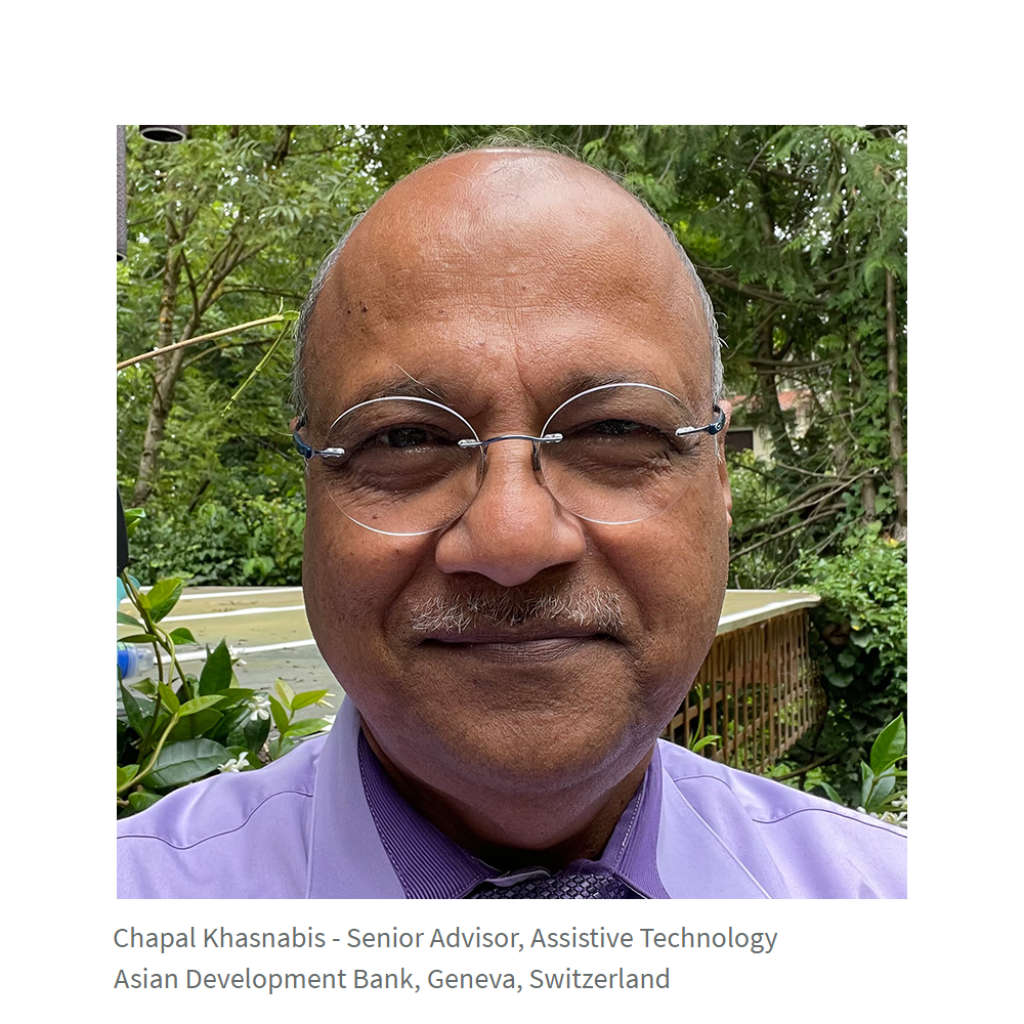
Chapal Khasnabis
Prosthetics and orthotics science is the key to sustainable rehabilitation and beyond
Chapal Khasnabis is a trained prosthetist and orthotist who began his professional career in 1979 working at the Ministry of Health and then at the Ministry of Social Justice and Empowerment. In 1994, he founded Mobility India in Bangalore, a resource centre for the Global South.
In 2003, Chapal moved to the World Health Organization to promote
prosthetics / orthotics and community-based rehabilitation (CBR) services. While working at the WHO, he developed guidelines, standards and tools for training in prosthetics and orthotics, guidelines and training packages for wheelchairs, CBR guidelines and several other important documents related to disability, rehabilitation and assistive technology.
In 2013, sensing the growing need for assistive medical devices, particularly in the ageing population, he moved to the Department of Essential Medicines and Health Products within the WHO and developed a worldwide programme entitled “Global Cooperation on Assistive Technology” (GATE).
In 2018, Chapal founded the ATscale Global Partnership for Assistive Technology and in May 2022, he published the first WHO-UNICEF Global Report on Assistive Technology.
On 31 January 2023, Chapal Khasnabis retired from his position as head of the Access to Assistive Technology and Medical Devices Unit at the World Health Organization in Geneva and now works as a senior advisor for the Asian Development Bank to promote the assistive technology industry in Asia and beyond.
KEYNOTE SUMMARY – Prosthetic and orthotic science is the key to sustainable rehabilitation and beyond
Prosthetic and Orthotic science is a very diverse and versatile scientific field. It builds and organises knowledge and skills, evolves, innovates and develops newer technology continuously over time and with context. At the same time, and based on scientific evidence, this field predicts future changes that are needed in relation to prosthetics, orthotics, mobility aids, assistive technology, various health care interventions including rehabilitation and beyond. Prosthetic and orthotic science is a very important field of rehabilitation science – a key that makes the apparently impossible, possible by optimizing the benefit of rehabilitation and other healthcare interventions and, unlocking human potential, assisting an individual to do what he or she wishes to do.
Twenty-first century health care needs are quite different and becoming more challenging considering the population growth, especially the ageing population. Needs are increasing faster than the available financial and human resources. However, the silver lining is the emergence of digital technologies, artificial intelligence, advanced materials, machines and equipment. Today, professionals in the prosthetics and orthotics field are much more scientific and tech-savvy than ever before. While maintaining the human touch.
It needs to be noted, what happens outside the hospitals and clinics is as important as what happens inside, especially to ensure sustainable rehabilitation and prosthetic and orthotic services. Hence, prosthetic and orthotic science needs to look beyond and establish strong linkages with other development sectors, especially public health and the world of economics. In fact, all health care services need to look beyond and establish its power within the country’s development agenda to become sustainable. Prosthetic and orthotic science has all the power and potential; an important key to open the gate of development, especially Sustainable Development Goals (SDGs) – leaving no goals and no one behind.
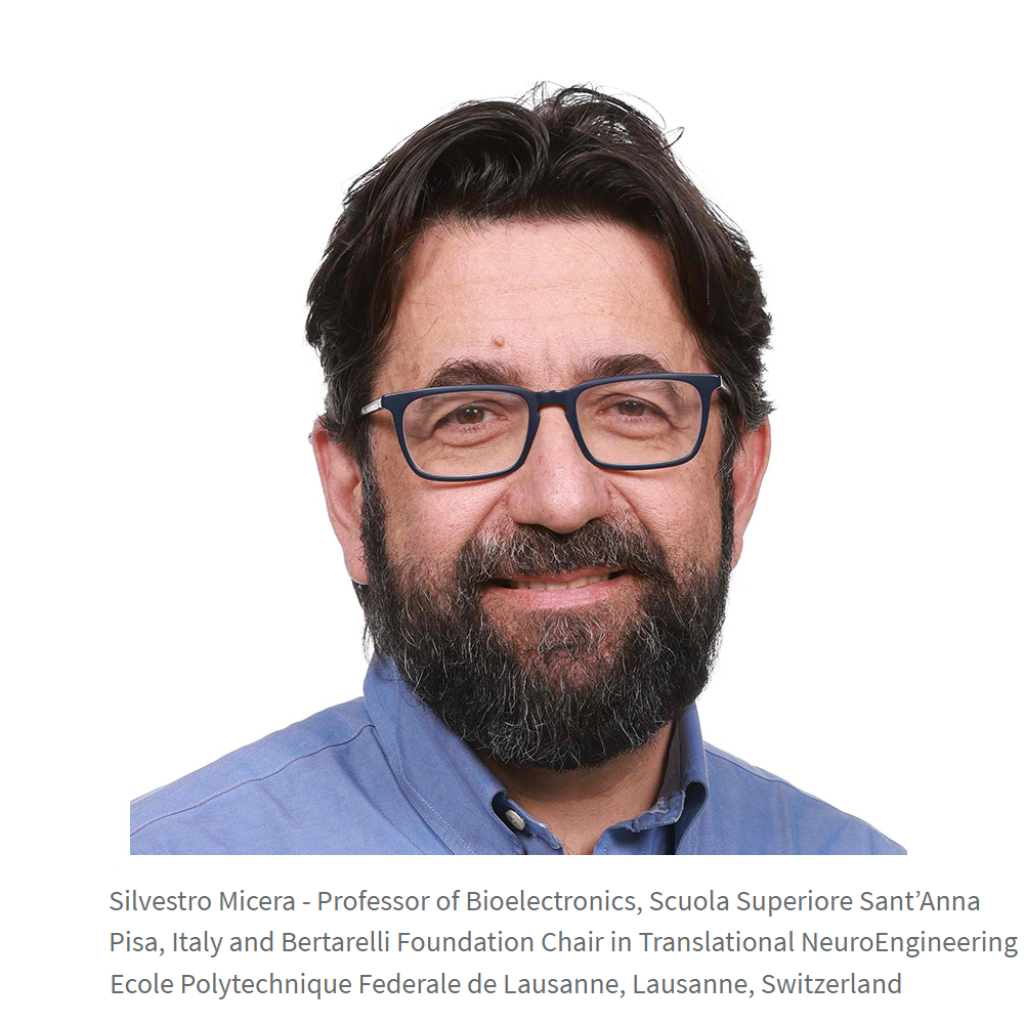
Silvestro Micera
Implantable and wearable modular neuroprostheses to understand and restore neural functions
Silvestro Micera is currently a professor of bioelectronics at the Scuola Superiore Sant’Anna (SSSA, Pisa, Italy) and the Ecole Polytechnique Federale de Lausanne (Lausanne, Switzerland) where he holds the Bertarelli Foundation Chair in Translational NeuroEngineering. He received a university degree (Laurea) in electrical engineering from the University of Pisa in 1996, and a PhD in biomedical engineering from the Scuola Superiore Sant’Anna, in 2000. From 2000 to 2009, he was an assistant professor of biorobotics at the Scuola Superiore Sant’Anna.
In 2007 he won a Fulbright scholarship to study as a visiting scientist at the Massachusetts Institute of Technology in Cambridge, USA. From 2008 to 2011 he led the neuroprosthesis control group and was a group leader at the Institute for Automation, ETH Zurich, CH. The IEEE Engineering in Medicine and Biology Society presented him with the “Early Career Achievement Award” in 2009 and the “Technical Achievement Award” in 2021.
Prof. Dr Micera’s research interests include the development of neuroprostheses based on the use of implantable neural interfaces with the central and peripheral nervous systems to restore sensory and motor functions in persons with disabilities.
He is the author of more than 400 WoS peer-reviewed papers and holds several international patents. He is also a member of several editorial boards of peer-reviewed journals in the fields of biomedical and neural engineering.
KEYNOTE SUMMARY – Implantable and wearable modular neuroprostheses to understand and restore neural functions
Neuroengineering is a novel discipline combining engineering including micro and nanotechnology, electrical and mechanical, and computer science with cellular, molecular, cognitive neuroscience with two main goals: (i) increasing our basic knowledge of how the nervous system works; and (ii) developing systems able to restore functions in people affected by different types of neural disability. Several breakthroughs have been reached by neuroengineers, in particular in the development of neurotechnologies able to restore sensorimotor functions in persons with disabilities.
In this presentation, I will provide several examples on how implantable interfaces can be used to restore sensory (tactile, position and thermal feedback for hand prostheses, vision), motor (grasping, locomotion), and autonomic functions (for type 2 diabetes and cardiovascular problems) and how they can be used also to understand cognitive functions such as language and decision making.
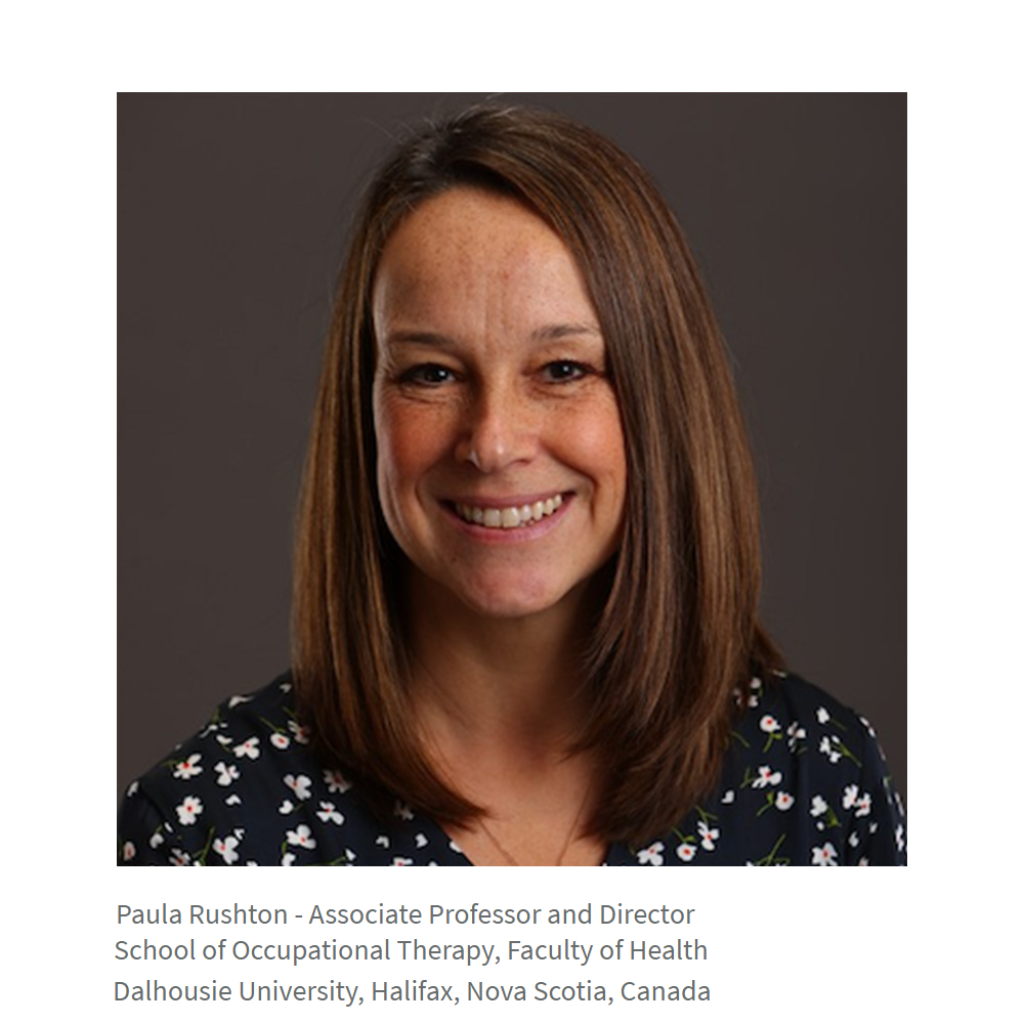
Paula Rushton
Rolling together: collaborative approaches to sustainable wheelchair education
Paula Rushton is an associate professor and director at the School of Occupational Therapy at Dalhousie University, Halifax, Nova Scotia, Canada.
She completed her Master of Clinical Science in occupational therapy at the University of Western Ontario (1999), a PhD in rehabilitation sciences at the University of British Columbia (2010) and postdoctoral training at the Université de Montréal in Biomedical Sciences (2014). Her research focuses on assessment, intervention, knowledge translation, and education related to improving the wheeled mobility of children, adults, and older adults through an improved wheelchair service provision process.
Regarding knowledge translation, assessment and intervention, Rushton is an expert in wheelchair skills and wheelchair confidence.
From an educational perspective, Rushton has been working with the International Society of Wheelchair Professionals to raise the profile of wheelchairs as a topic on the curriculum of university courses for healthcare professionals worldwide.
KEYNOTE SUMMARY – Rolling together: collaborative approaches to sustainable wheelchair education
All people deserve access to appropriate mobility devices, as noted by the United Nations Convention on the Rights of Persons with Disabilities, Article 20. Regrettably, this expectation is yet to be achieved. With 80 million people worldwide requiring a wheelchair for mobility, it is imperative that sustainable and equitable processes are established to facilitate access. It is time to confront how structures of our academic, educational, and health systems create unintended inequities and harm!
One advancement would be to improve sustainable, high-quality training for those who serve on the front line of wheelchair service provision across the globe. To achieve this goal, we need collaborative research approaches, such as participatory action, patient-oriented, and Indigenous decolonizing approaches, which have proven vital to developing best and sustainable practices. While the importance of creating research processes that are conducted with participants rather than on participants has been recognized since the 1940s, there are barriers to overcome at both the system- and researcher-levels to fully embrace end-user engagement in research.
To demonstrate the possibilities of honouring collaborative approaches, three examples will be described involving the development of a Wheelchair Educators’ Package, wheelchair skills training resources, and research priorities. The speaker will share experiences about how genuine engagement with those for whom the research outcomes are intended can contribute to sustainability. Lessons learned, recommendations, and calls to action will be offered. As the African proverb tells us, “If you want to go fast, go alone; if you want to go far, go together”.
